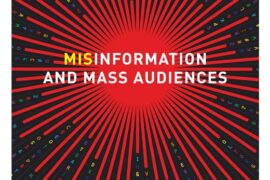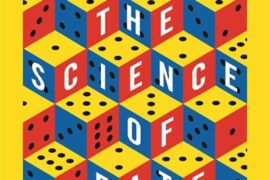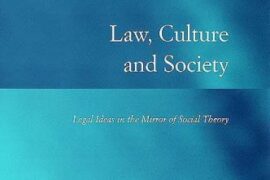2022 EBS 수능특강 영어 변형문제 (11강 Exercise 6)
주제문이 문두에 오고 빈칸이 문미에 위치한 양괄식인 경우 빈칸은 문두의 주제문을 다른 말로 재표현한 요지이다. 문두의 주제문을 파악한 후 빈칸 전후 부분에서 정답의 단서를 찾는다.
수능특강 영어 변형문제(11강 Exercise 6)
[빈칸 추론 → 빈칸 추론]
다음 빈칸에 들어갈 말로 가장 적절한 것은?
Even though philosophy is a communal enterprise dedicated to exploring our justification for using the criteria we use to distinguish between, for example, moral and immoral actions, truth and falsity, reality and appearance, and more, philosophical discourse proceeds by argumentation. So a philosopher might put forward “correspondence to reality” as a criterion for distinguishing a true belief from a false one. In order to determine whether that is an adequate criterion, other philosophers would critically discuss that proposal, and one might criticize it by pointing out that we have no means of telling whether or not an idea corresponds to reality because our access to reality is always mediated by our ideas. And that’s exactly how a philosophical discussion develops, with all the parties to it advocating their own point of view (although they can jump ship and switch to the other side!) at the same that they are committed to .
① discussing how to establish critical criteria
② engaging in philosophical discussion of issues
③ jointly figuring out the correct answer to the question
④ applying all sorts of viewpoints to communal business
⑤ explaining why many questions that appeared to be philosophical
정답 및 해설
[해설]
정답 ③
주제문이 문두에 오고 빈칸이 문미에 위치한 양괄식인 경우 빈칸은 문두의 주제문을 다른 말로 재표현한 요지이다. 문두의 주제문을 파악한 후 빈칸 전후 부분에서 정답의 단서를 찾는다.
문두 주제문은 양보부사절, 주절의 형식을 쓰고 있다. 철학은 도덕적인 행동과 부도덕한 행동, 진실과 거짓 등을 구별하기 위해 우리가 정한 기준(criteria)에 대해 정당한 이유[정당성]을 탐구하는 데 바쳐지는[전념하는] 공동의 사업이다 라는 양보부사절과 그렇지만 철학적 담론은 논증으로 진행된다는 주절이 뒤를 잇고 있다.
주제문이 문두에 나오고 빈칸이 마지막 문장에 나온 경우 양괄식을 적용하면 빠르고 쉽게 풀이할 수 있다. 빈칸은 문두의 주제문을 재표현한 요지이므로 문두의 핵심어가 어떻게 말을 바꿔쓰기 하는지에 유의해야 한다.
문두 주제문의 주절 ‘philosophical discourse proceeds by argumentation’을 → And that’s exactly how a philosophical discussion develops 으로 재표현했다.
이제 빈칸은 문두 주제문의 양보절의 핵심표현을 말 바꿔쓰기(paraphrase)할 차례이다. ‘a communal enterprise dedicated to exploring our justification for using the criteria’ → are committed to jointly figuring out the correct answer to the question 으로 각각 재표현했다. 따라서 정답은 ③번이다.
(be) dedicated to → be committed to ~에 전념하다
exploring our justification → figuring out the correct answer
communal enterprise 공동의 사업 → jointly 공동으로
선지 해석
① discussing how to establish critical criteria (중요한 설정 기준 방법을 논의하는 일에)
② engaging in philosophical discussion of issues (문제에 대한 철학적 토론에 참여하기 위한 일에)
③ jointly figuring out the correct answer to the question (그 질문에 대한 정답을 공동으로 찾아내는 데)
④ applying all sorts of viewpoints to communal business (모든 종류의 관점을 공동 일에 적용하는 일에)
⑤ explaining why many questions that appeared to be philosophical (왜 많은 질문이 철학적으로 보이는 지에 설명을 하는 일에)
해석 및 어휘
[해석] 비록 철학이 예를 들어, 도덕적인 행동과 부도덕한 행동, 진실과 거짓, 실체와 외관 등을 구별하기 위해서 우리가 쓰는 기준을 사용하는 것에 대한 정당한 이유를 탐구하는 데 바쳐지는 공동의 사업이기는 하지만, 철학적 담론은 논증으로 진행된다. 그래서 어떤 철학자는 참된 믿음과 거짓된 믿음을 구별하기 위한 기준으로 ‘현실과의 부합’을 제안할지도 모른다. 그것이 적절한 기준인 지를 알아내기 위해서, 다른 철학자들은 그 제안을 비판적으로 논할 것이며, 어떤 사람은 현실에 대한 접근이란 항상 생각에 의해 매개되기 때문에 어떤 생각이 현실에 부합하는지 아닌지를 구별할 수 있는 수단이 없다는 점을 지적함으로써 그것을 비판할지도 모른다. 그리고 철학적 토론은 정확히 그런 방식으로 전개되는데, 그 토론의 모든 당사자들은 그 질문에 대한 정답을 공동으로 찾아내는 데 전념하는 동시에, (비록 자기가 속한 편을 떠나 반대편으로 바뀔 수 있지만!) 자신의 관점을 옹호한다.
[어휘] communal 공동의 dedicated to ~에 바쳐지는 justification 정당한 이유, 정당화 criterion 기준 (pl. criteria) distinguish 구별하다 falsity 거짓, 허위 put forward 제안하다, 제언하다 correspondence 부합, 일치 adequate 적절한, 적당한 critically 비판적으로 criticize 비판하다 mediate 매개하다, 조정하다 advocate 옹호하다 jump ship (배를 떠나다 → 이탈하다) argumentation 논증








